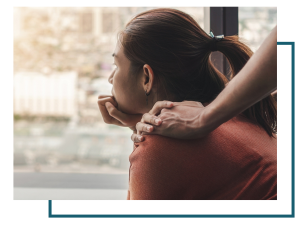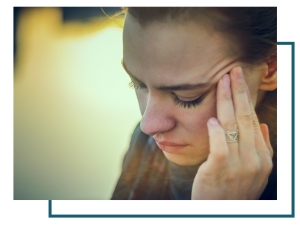LGBTQ+ Therapy
People who identify as lesbian, gay, bisexual, transgender, or queer often seek Psychotherapy at a higher rate than their non-LGBTQ+ counterparts.
This is in part due to the social and cultural backlash that comes with thinking, identifying, or acting in a way that is outside of the accepted norm. LGBTQ+ people experience Mental Health challenges just like anyone else, but they are often compounded with additional discrimination, rejection, and harassment that they face on a daily basis. To complicate matters further, LGBTQ+ people are also more likely than their heterosexual and cisgender counterparts to have experienced some kind of trauma in their lives.

Unfortunately, many who have sought help from a Mental Health professional claim dissatisfaction with their experience because of a lack of understanding or even discrimination from their psychologist. At a minimum, clients often feel that they have to play the part of educator to psychologist who are usually limited in their awareness and knowledge of LGBTQ+-related issues.
At Blair Wellness Group of Beverly Hills, we understand that for individuals who identify as LGBTQ+, finding the right Mental Health professional can be difficult. Our mission is to provide a safe and judgment-free environment for people of all genders and sexual orientations to explore their personal struggles and challenges and provide affirmative therapy that embraces a positive view of LGBTQ+ identities. Learn more about the difference affirmative therapy can make and see how you can find LGBTQ+ Therapy in Los Angeles at Blair Wellness Group.
Other Service
-
Binge Eating DisorderBinge Eating Disorder
-
Anorexia NervosaAnorexia Nervosa
-
Bulimia NervosaBulimia Nervosa

Opening Hours
Mon - Fri :
7 am - 11 pm
Sat - Sun :
9 am - 10 pm
What is Affirmative Therapy?
Living outside the norms of mainstream society can be fraught with challenges. The way you express your gender and sexual orientation can unfortunately have a profound impact on your relationships at home, at work, and in the community. LGBTQ+ Affirmative Therapy is an approach to therapy that goes beyond tolerance or just “accepting” of diverse populations. It is based on the premise that LGBTQ+ and heterosexual identities are equally valid, and therefore it embraces a positive view of LGBTQ+ lifestyles as a normal and healthy expression.
Affirmative Therapy addresses the negative influences and oppressive stereotypes surrounding LGBTQ+ clients and the impact they can have on their lives. It also recognizes the need for open support and acceptance of how a person thinks, feels, and acts in relation to their sexual orientation or gender identity. In the most simple of terms, affirmative therapy seeks to treat LGBTQ+ people with the understanding, respect, and dignity that they deserve.
LGBTQ+ Mental Health
Less than 50 years ago, homosexuality was classified as a mental health condition. However, today, the focus of therapy isn’t on the client’s sexual orientation, it’s on how they think, feel, and act with regard to their orientation or gender identity. The goal of Affirmative Therapy is to help LGBTQ+ individuals feel comfortable with who they are so they can go on to lead happy and healthy lives.
Unfortunately, those in the LGBTQ+ community often have a higher incidence of Mental Health Disorders because of the negative experiences and daily discrimination they face, along with a common lack of family or social support. The following are just a few of the most common Mental Health challenges faced by those who identify as LGBTQ+.
Depression
Coping with feelings of uncertainty and shame about one’s identity and life choices, paired with rejection or bullying from family and friends, is something that many LGBTQ+ people struggle with on a daily basis. As a result of this ongoing stress, depression is something that is not uncommon.
Depression is different for everyone, but it usually is accompanied by feelings of persistent sadness as well as decreased energy, feelings of helplessness, constant worry, and a loss of interest in things once enjoyed. Without treatment, Depressive Disorders can interfere with work, relationships, and the ability to perform daily tasks. It can also become a risk factor for addiction, and in the most serious cases, be a contributing factor in suicide attempts.


PTSD
Many who identify as LGBTQ+ will experience bullying, discrimination, as well as verbal or physical abuse as a result of their sexual orientation or gender identity. This can cause trauma, which can manifest into an Anxiety Disorder known as PTSD. People who suffer from PTSD, or Post-Traumatic Stress Disorder, may have intense anxiety, mood disturbances, and nightmares that can persist for months and even years. As a result, those who suffer from PTSD are more likely to turn to negative coping mechanisms such as self-isolation, attempting to change their sexual orientation, or developing a dependence on drugs or alcohol.

Stress-Related Disorders
Stress associated with negative thoughts, emotions, and experiences is not only distressing — it’s unhealthy. Although most people may think of stress as a mental condition, it is also associated with a wide range of physical problems including insomnia, high blood pressure, upset stomach, unexplained aches and pains, and more. From a Mental Health perspective, stress can be directly related to other Mental Health Disorders such as Anxiety Disorders, Addiction Disorders, Depressive Disorders, anger issues, and certain Personality Disorders.

Addiction
The trauma and shame that many LGBTQ+ people experience can lead to negative coping mechanisms such as drugs or alcohol. Once a person starts increasing their dependence on something to numb their feelings or avoid painful situations, it’s a slippery slope from occasional use to dependency, and ultimately — addiction. LGBTQ+ people encounter many challenges, especially if they decide to come out, and they likely face rejection and harassment from their home, work, or religious community. That’s why it’s important to seek help and professional intervention from an LGBTQ+-affirming therapist as a means to address your feelings and find healthy ways of coping with difficult or hurtful situations.
Get the Help You Deserve

LGBTQ+ Psychologist in Beverly Hills, Irvine, and Newport Beach
If you’re looking for LGBTQ+ Therapy in Los Angeles from a Licensed Clinical Psychologist who is encouraging, understanding, and supportive of all people regardless of sexual orientation or gender identity, we encourage you to request an appointment with Dr. Blair.
Dr. Cassidy Blair is a doctoral-level Licensed Clinical Psychologist with experience in helping people within the LGBTQ+ community find effective solutions for a variety of Mental Health Conditions and disorders, both related to and unrelated to their gender identity and sexual orientation. At Blair Wellness Group, clients will experience an accepting and nurturing environment where they can feel comfortable to express who they really are and discuss their barriers to happiness.
If you’ve been searching for a different kind of psychologist for your Mental Health treatment, contact us today. We specialize in treating a wide variety of problems including Addiction Disorders, Depressive Disorders, Anxiety Disorders, relationship issues, and more. Our office is located in Beverly Hills, but we service clients in Los Angeles, Irvine, Beverly Hills, Newport Beach, Bel Air, Century City, Brentwood, Westwood, Huntington Beach, Mission Viejo, Aliso Viejo, and the surrounding areas. Call Blair Wellness Group today to schedule an appointment.
Our Core Values
Discover effective solutions for addiction at Blair Wellness Group today. Call us at 310.999.4996 to schedule an appointment. We welcome patients from Beverly Hills, Los Angeles, Irvine, Newport Beach, and the surrounding areas.

Reliable
At Blair Wellness Group, we are here to meet your clinical needs at any time.

Dedicated Support
Our team provides the compassionate care, support, and necessary interventions needed for our clients to achieve their goals and clinical objectives.

Experience
With 15+ years of clinical experience in providing an array of psychological services, we are committed to helping our patients achieve their goals.

Professional Team Support
We are dedicated to the well-being of our clients and have the extensive training to provide them with high-quality care.
Looking for a Local Psychologist?
Our Psychologists and Therapists in Los Angeles, Beverly Hills, Irvine, Newport Beach, and the surrounding areas offer evening and weekend appointments for our Concierge patients. Contact us today to discover how Blair Wellness Group can help you overcome personal or professional challenges and mental health disorders, such as depression, anxiety, relationship challenges, addiction issues, and personality disorders.
Dr. Cassidy Blair is a renowned Licensed Clinical Psychologist and trusted Performance Coach who specializes in providing Concierge-Psychological Care and Executive Coaching for high-achieving professionals. With a deep understanding of the unique challenges faced by CEOs, executives, entrepreneurs, and leaders, Dr. Blair offers tailored, confidential care designed to foster emotional well-being, personal growth, and professional excellence. Her clientele values her discretion, clinical expertise, and emotionally intelligent approach to navigating complex personal and professional dynamics.
- Dr. Cassidy Blair, Psy.D.
- Dr. Cassidy Blair, Psy.D.
- Dr. Cassidy Blair, Psy.D.
- Dr. Cassidy Blair, Psy.D.


